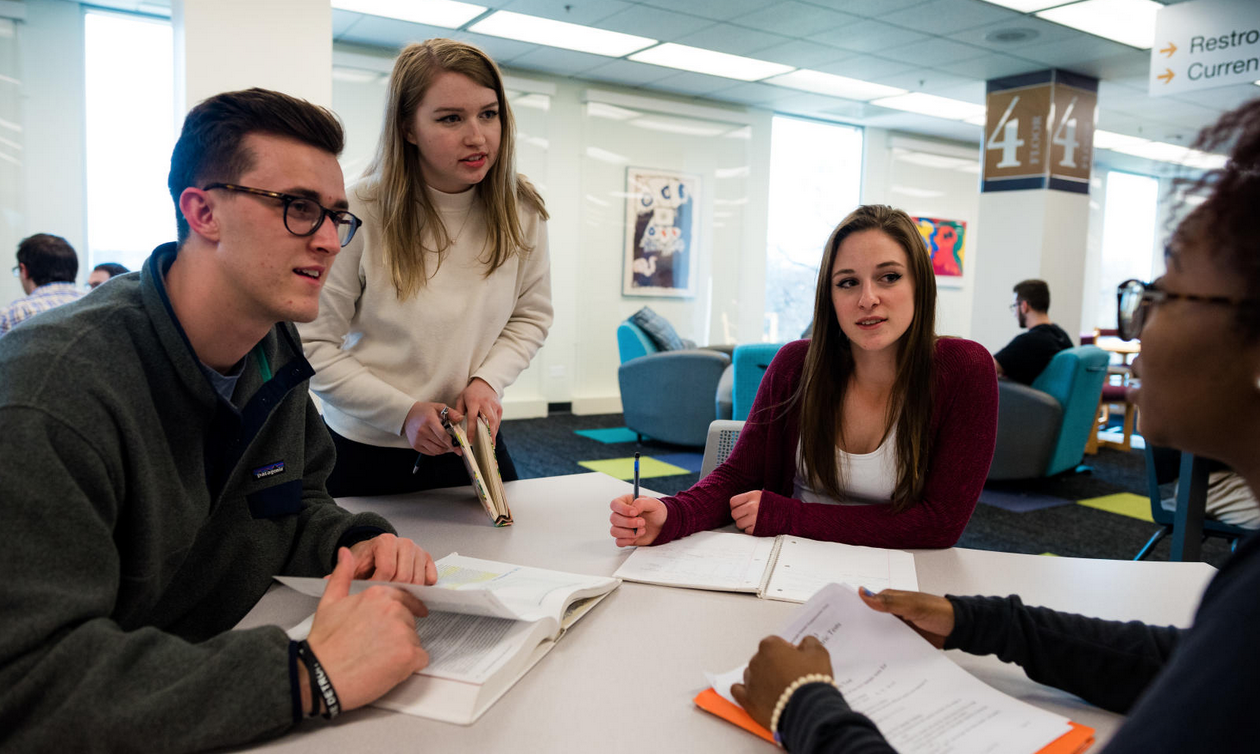Center for Excellence in Teaching and Learning
Kresge Library, Room 430
100 Library Drive
Rochester,
Michigan
48309-4479
(location map)
(248) 370-2751
[email protected]

Strategies for Reading Scholarly Articles Effectively
CETL Learning Tips are written for a student audience.
Reading scholarly articles is difficult. They’re long and filled with complex vocabulary. Plus they are very different from other types of readings (such as textbooks) that you’re expected to read for class. These reading strategies will help you tackle reading scholarly articles:
- Don’t read from Introduction to Conclusion. You don’t want to read the article straight through, only to realize that this article isn’t relevant to you. That’s a waste of time! By reading the article out of order, you can stop after each section and ask yourself, “Is this article still relevant to me?” If yes, continue reading. If no, stop! Don’t waste your time reading an article that isn’t relevant to you. Read each article in this order:
- Look at the information about the article (title, author, abstract, citation)
- Skim the Introduction
- Glance at section headings
- Review Discussion/Conclusions sections
- Read through the other sections
- You don’t need to read the whole article in one sitting. As one OU professor says, “It’s not Harry Potter!” - meaning, you’re not trying to read these articles to follow a story. Instead, you need to be intentional and selective in the information you pull out. Doing so might mean that, in one chunk of time, you skim through a number of articles’ Introduction and Conclusion sections to determine what you want to read in more depth. Then, at another time, you can read the methods, findings, and literature review sections of those articles if they’re relevant to your needs.
- Read articles several times. Scholarly articles are dense. You’ll need to read them multiple times -- in fact, reading it at least three times can help you make sense of the text, identify big ideas, and pick out questions you have. Remember, you’re not reading from beginning to end three times… by being intentional about how you read each time, you won’t spend as much time reading, but you’ll glean more important information from your reading process.
- Markup the text as you read. As you are reading scholarly articles -- and especially if you’re reading them in more than one sitting -- highlight, circle, make notes in the margins, or do whatever works for you. Notes written on a printed article or annotated electronically in a PDF can help you jump to important spots in the text when you revisit articles to complete assignments, re-read important concepts, or find additional information. However, be judicious about what you mark up -- if you’ve highlighted a whole page, it’s hard to figure out what’s important!
- Discuss scholarly articles with others. If you’re in a class where you’re reading the same scholarly article as your peers, find ways to talk with them about what you’ve read. Having conversations about the concepts you’re encountering, especially with other students, can help you identify your own misconceptions, points of confusion, or areas you want to investigate further.
- Look up unfamiliar terms and write down the definitions on the article itself. There are subject-specific resources like dictionaries and encyclopedias available online through the OU Libraries that can help you decipher jargon or terms you don’t understand. When you look these words up, write down what you find on the article. This way, as you revisit the text, you don’t have to keep looking up the definitions of unfamiliar words!
Want to learn more? Master the art of reading scholarly articles effectively by completing OU Libraries’ Reading Scholarly Articles tutorial online. Score 80% or higher on the final exam and you’ll earn the Reading Scholarly Articles badge.
Save and adapt a Google Doc version of this learning tip.
Amanda Nichols Hess is an Associate Professor in OU Libraries. Joanna Theilen was faculty in the OU Libraries before she moved to University of Michigan. Others may share and adapt under Creative Commons License CC BY-NC . View all CETL Learning Tips . Follow these and more on Facebook , Twitter , and LinkedIn .


